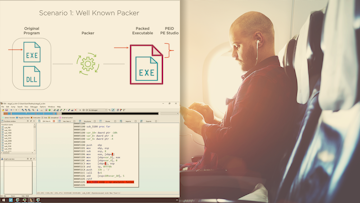
Malware authors will routinely utilize obfuscation techniques to complicate the analysis of their code. One such technique is packing, in which a malicious program is layered inside another program. In Malware Analysis: Identifying and Defeating Packing, you will gain the skills necessary to not only identify prevalent packing techniques, but also how to effectively defeat them. First, you will learn how packers work and how malware authors regularly use them. Next, you will learn how to detect common packers and methods for unpacking. Finally, you will learn about custom packers, how you can identify them and effective ways for...
Read more
Good to know
Save this course
Activities
Career center
Malware Analyst
Cybersecurity Analyst
Information Security Analyst
Network Security Engineer
Security Engineer
Security Architect
Security Consultant
Software Developer
Software Engineer
Computer Programmer
Computer Scientist
Data Scientist
Database Administrator
Information Technology Specialist
Network Administrator
Reading list
Share
Similar courses
OpenCourser helps millions of learners each year. People visit us to learn workspace skills, ace their exams, and nurture their curiosity.
Our extensive catalog contains over 50,000 courses and twice as many books. Browse by search, by topic, or even by career interests. We'll match you to the right resources quickly.
Find this site helpful? Tell a friend about us.
We're supported by our community of learners. When you purchase or subscribe to courses and programs or purchase books, we may earn a commission from our partners.
Your purchases help us maintain our catalog and keep our servers humming without ads.
Thank you for supporting OpenCourser.


